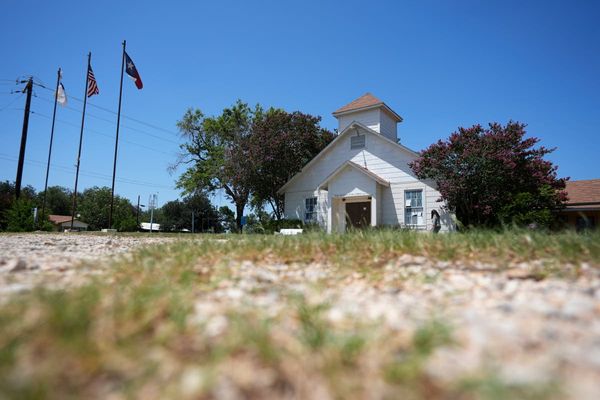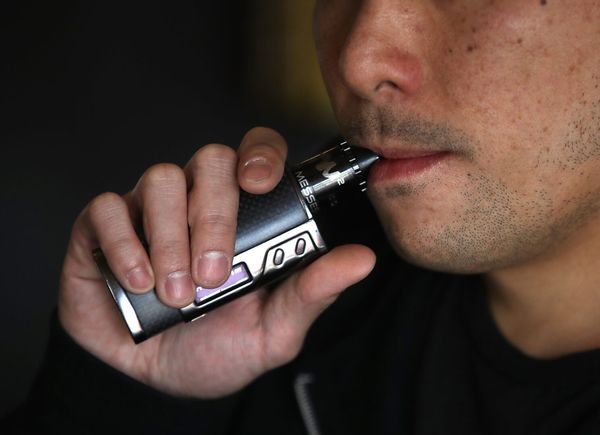
In 1967, Cleo Sylvestre was a young actor relaxing in her dressing room at the Wyndham’s theatre in London when there was a knock on the door. She was making her debut on the West End stage, in Simon Gray’s first play, Wise Child, alongside Alec Guinness. Now, after a matinee performance, another giant of British theatre wanted to say hello. “I opened the door and a man was standing there,” she says.
It was Laurence Olivier. “He said: ‘Oh, Miss Sylvestre, I’d just like to congratulate you on the most wonderful performance,’” she says, emulating his crisp diction. Only a few months before, Sylvestre had paid five shillings to watch Olivier from the gods at the National Theatre and now the patriarch of British stagecraft was complimenting her. “I don’t think I said anything,” she says, when we meet in her local north London pub.
You could excuse her for being shocked. The actor was in uncharted territories, as a 23-year-old starring in the West End and also as a pioneering actor of colour entering spaces no other black actor had. As a child, she had performed on a stage she constructed under her mother’s kitchen table in their flat in Euston, north London, and dreamed of being an actor: now, against difficult odds, it was happening. Two years after the meeting with Olivier, she made history as the first black woman in a leading role at the National Theatre, in Peter Nichols’ satire The National Health.
Being the first in so many places presented practical challenges, such as hair and makeup. “At the BBC, the whole makeup room went into panic because they didn’t know what to do,” she says. “They didn’t have any proper makeup or anything.” She had to research her own makeup and bought a book on the subject, which broke down actors of colour into six categories. “There was negro one, negro two, light Egyptian, dark Egyptian, Jew and Arab,” she says. “It might have been for white actors who were blacking-up, but I ended up going with light Egyptian.”
More than 50 years later, Sylvestre has a sense of humour about those moments – and about the fact that, despite appearing in some of the most important TV shows of the 60s and 70s, she is not a household name like some of her peers. A look at her IMDb page shows there were roles in Z Cars and Till Death Do Us Part, a bit part in Coronation Street and an appearance as a belly dancer in Doctor Who. Sylvestre says cast and directors were all welcoming to her, but there was an undercurrent at that time in British TV and theatre that was less than inclusive. At union meetings, it was common to hear white actors petition for black American actors to come over to the UK because black British actors “weren’t any good”. Sylvestre was critical in changing that stigma, working for directors such as Ken Loach and performing with actors such as Antony Sher.
“In the 1960s, Cleo Sylvestre stood out among a new generation of black actors in Britain because, unlike those who came here from Africa and the Caribbean, she was born here and had a noticeable working-class London accent. No wonder Ken Loach cast her,” said Stephen Bourne, who co-curated a BFI season in 1992 dedicated to black British TV from the early 60s to the mid-80s.
Sylvestre, who is now 75, grew up in north London, where she was educated at Camden school for girls and also attended Italia Conti Academy of Theatre Arts. She decided she wanted to go into acting, despite a teacher telling her there were no roles for “coloured” actors. “She was right, but that made me even more determined,” says Sylvestre. “Despite the obvious challenges, she was in the right place to forge a career in show business.
In the 60s, London was emerging from the postwar gloom with a new generation of designers, actors, theatre-makers and directors. Sylvestre was a friend of the Rolling Stones, whom she had met at a blues night in Soho. During her short-lived music career, in 1964 she recorded a single with the band, To Know Him Is to Love Him. After nights out, Mick Jagger and Brian Jones would come round to her mum’s flat for home-cooked meals. “You just knew they were going to be big,” Sylvestre says of the Stones. “Suddenly there was this burst of everything: music, colour, miniskirts and boutiques.”
Jimmy Page was another regular at the flat, along with the Hollies. She remembers Graham Nash coming round one evening and being blown away by her mother’s ceramics, which were laid out around the flat. “There was Graham and Allan Clarke, with their lovely Mancunian accents, complimenting my mum’s pottery and trying to bargain with her,” she says. You could easily imagine her playing a part in Blow-Up, Michelangelo Antonioni’s film about 60s London, which featured cameos from friends such as Page.
Although Sylvestre does not remember overt racism from colleagues at the time, London in the 60s could be incredibly hostile. She recalls walking down the high street with her mum when they heard footsteps and panting behind them as someone approached. “Oi, nig!” the person shouted. “Nig! nig! Wait!” It was an elderly neighbour who was trying to catch up with them. “She said: ‘Sorry, I didn’t know what else to call you.’ That woman was born in the Victorian age, it was how some people spoke to you,” says Sylvestre.
Sylvestre’s family history is fascinating. Born in London, Sylvestre was brought up to believe her mother’s husband, Owen Oscar Sylvestre, was her father. Owen and Laureen had married in 1944 and Cleo was born in April 1945, but Sylvestre would not discover her father’s real identity until decades later. Owen, a former airman from Trinidad, had come to the UK to fight in the second world war, flying Lancaster bombers. Unable to get work as a pilot in Europe after the war, he became increasingly disillusioned with life in the UK. The difficulty of forging a successful flying career, despite being decorated for his service, took its toll and he developed a gambling problem. The couple’s marriage fell apart, ending in divorce in 1955.
Laureen, who was mixed race, had grown up in care in Hull and Harrogate before moving down to London to pursue a stage career as a tap dancer. Cleo wrote about her mother’s life for a project called Africans in Yorkshire. She discovered her grandmother was also a dancer and had Laureen with a black man, who has never been identified. “I fantasised that maybe he was working on the music hall,” she says. “Maybe he was a visiting artist, or maybe he could have been a sailor.”
Her parent’s relationship was no less puzzling. “I used to get these letters from someone called Uncle Ben and my ‘sister’ Miriam in Sierra Leone. I just assumed that was the African way of greeting people,” she said. The young Sylvestre didn’t think much of the letters that updated her on life in Freetown. But there were moments that stuck in her memory, such as a conversation between Owen and her mother, in which he said: “I’m going to tell her.” But she never found out what she was going to be told, and she did not ask. Yet she had a child’s intuition that there was something substantial behind his words.

Decades later, in 2007, her daughter Zoe Palmer was performing in Sierra Leone, and took with her one of the letters that “Uncle Ben” had sent to Cleo to see if anyone could shed light on this mysterious figure. She visited the address on the letter and, although Uncle Ben had died, neighbours gave Zoe details of his children. It turned out that Uncle Ben was a lawyer from Sierra Leone – and Cleo’s father. “It was quite a shock to the system,” says Sylvestre, in her typically understated way. She travelled to Sierra Leone and met five of her 15 half-siblings in Freetown a year later. “It’s interesting because I’ve always identified more with Africa than the Caribbean,” she says. “It must have been something in the genes.”
Sylvestre’s acting roles often pushed at the boundaries of the times. For Loach, she acted in his first film, Poor Cow, as well as Cathy Come Home and Up the Junction – the director’s verite TV play about the lives of factory workers in Clapham, south London. Another of those innovative productions was the Roy Battersby-directed Some Women, a dramatisation of real-life stories from imprisoned women. It was originally pulled by the BBC because it was felt it was too realistic and could confuse viewers. But after a public campaign, it was eventually shown late at night on BBC Two. The following morning, Reg Watson, the producer who went on to create Neighbours, rang Sylvestre and invited her to Birmingham for a tour around the Crossroads set. She was wooed and agreed to join the soap’s cast.
It was another breakthrough. Only two black actors had had recurring roles in British soaps (Joan Hooley in ITV’s Emergency Ward 10 and Horace James in BBC’s Compact). But Crossroads was on another level. It was a massive hit, with viewing figures of 15 million at its peak, and it propelled Sylvestre into the mainstream.
“It was not long after Enoch Powell’s Rivers of Blood speech, and there was a lot of racial tension everywhere,” she says. Sylvestre played Melanie Harper, the foster daughter of the main character, Meg Richardson – a role she played for two years. “They brought me in and the character had nothing to do with colour,” says Sylvestre. “That was clever.”
After the death of Crossroads’ creator, Hazel Adair, Sylvestre wrote to the Guardian to say how brave the decision was. The role had an instant impact. “People would come up to me in Birmingham and say: ‘Oh, Melanie, what are you going to do? I love your character.’ It really showed people another side of things and questioned what they thought they knew about black people.”
Yet, despite her track record, Sylvestre’s career was not guaranteed. As with her contemporaries – black British TV writers, including Barry Reckord and Trix Worrell, and pioneering black British actors including Don Warrington, Norman Beaton and Carmen Munroe, who emerged in the 60s – she found the successful careers as their white counterparts were always just out of reach.
She mentions Thomas Baptiste and Louis Mahoney as actors who were never recognised in their lifetimes, despite their work on and off stage to pave the way for younger black actors. Sylvestre says that, before his death in 2018, Baptiste would ring her up each year and ask who had been given an honour by the queen. She would go through a list of younger black actors who had been given MBEs and OBEs, and invariably he would say: “Oh, and I haven’t even been given a F.U.C.K.”
There is not even a hint of bitterness when Sylvestre talks about her career and what might have been. But that does not mean she can ignore the differences. “I’m the same age as Helen Mirren,” she says. “There was a Sunday Times critic called Harold Hobson, who always praised us both. I’m not saying I would have ended up where Helen Mirren has ended up, but being an actor then for me was like being a hamster on a wheel. You’d do a show and get great reviews, but then you’d have to start all over again. Being at the National Theatre didn’t then lead to a West End play,” she says. “Nothing led anywhere.”
After her West End and National Theatre debuts, she wrote to every repertory theatre company in the country. Theatre was in a golden age, providing security and opportunities for actors to hone their skills. Sylvestre got a reply from three. Big rep companies such as Liverpool produced talent such as Jonathan Pryce, Julie Walters and Pete Postlethwaite. But the replies she received were a variation of the same thing: “If we’re doing The Crucible, we’ll bear you in mind.” The subtext was clear – the Arthur Miller play includes a black slave called Tituba – and that was the only part for which they would consider her.
That culture of rejection – and the fact that, if she did get a part, she would often be the only person of colour in the production – added extra pressure to her performing. “I felt that responsibility,” she says. “You felt that you had to be better. You had to be really, really good because you’re representing so many people.” If she failed, she feared people would say: “Oh, well, you know, it’s true what they say, they really can’t act.”
Sylvestre left Crossroads to continue her stage career at the Young Vic, which was run by Frank Dunlop and had several actors of colour in its ensemble, including David Yip and Tony Osoba. There she had the opportunity to play on Broadway in a production of Scapino, with Dunlop not waiting for “black parts” in which to cast her. She talks fondly of Dunlop, who is now 93. In the mid 90s, Sylvestre became an artistic director herself, at the Rosemary Branch theatre in north London, where she embraced the same open policy that Dunlop used. They pioneered opera in an intimate setting and she also established Branching Out, an annual festival dedicated to new works from emerging companies.
What is her proudest moment? For Sylvestre, it is not the plays at the National, meeting Olivier, or even breaking down barriers on Crossroads, it was her one-woman play about the life of Mary Seacole, the British-Jamaican nurse who served during the Crimean war. She performed it around the country and in schools. And one day she met a fan. “One little girl came up to me in the supermarket and asked me if I was Mary Seacole,” she says. “I told her I played her in the show and she asked me about her. I thought, ‘She’s really listened’ and that really thrilled me.”
Sylvestre is still working today. Our interview was moved because she is filming a new Sky drama, and this time the makeup department was prepared. A few days after we speak, she emails. There is another story, about a visit to Pentonville prison where she also performed her Mary Seacole show. A repeat offender came up to her after the performance and said that, after hearing Seacole’s story, they were determined to go down a different path. “It summed up why I wanted to act; to entertain, educate and enlighten,” she wrote.







